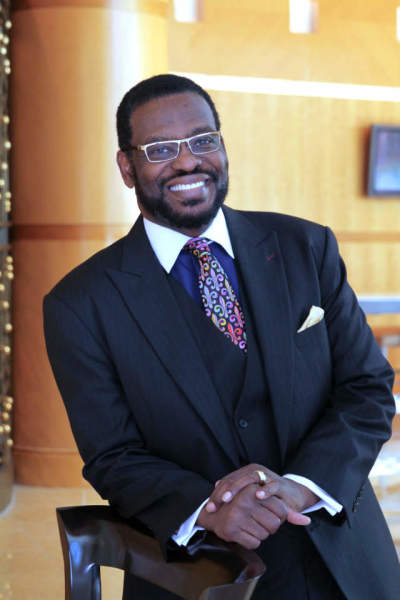The Biggest Obstacle to Good Leadership in Today's Hi-Tech World

As the primary season for the 2016 presidential election heats up, we hear all sorts of rhetoric surrounding the meaning of good leadership. Men and women from all over the country try to convince us that they are full of integrity, compassion, decisiveness and all sorts of other abstract qualities that seem impossible to measure or quantify. But what is God's plan for leadership, not just for our elected officials, but for everyday people?
Every Christian exercises leadership in some capacity. Whether we are at home, at church, at school, at work, in our peer groups or in our communities, we all influence others with our words and actions. God's plan for leadership in all these venues has not changed: we are to lead by serving and loving those around us. Yet the challenges we face as leaders today are different than in generations past.
In my own experience, one of the most daunting obstacles we face to exercising godly leadership is distraction. The ubiquitous presence of electronic devices and internet access presents unprecedented interruptions for everyone. To be effective leaders, we must learn to tune out these diversions and focus on what is most important.
Yet too often the idea of "priorities" in the Christian life has been reduced to making time to read the Bible, pray and attend church. These are indeed vital components of our walk with God, but they are perhaps better thought of as habits we should cultivate rather than accomplishments in and of themselves. If we are to live lives truly worthy of the Gospel — as Paul urged in Philippians 1:27 — we must view spiritual disciplines as the starting point, not the ultimate goal.
The beauty of cultivating the right habits is that once an activity has become a regular part of our daily routines, it takes far less energy to execute it. And prayer and Bible reading are not the only habits Christians need to lead effectively. Healthy lifestyle practices are often undervalued by too many Christians. After a miraculous recovery from esophageal cancer in 2005, I learned firsthand the importance of eating healthy foods and making time to exercise. Our bodies — in addition to our time and our money — have been given to us by God to steward for this life, and we must be sure to be found faithful.
In addition to godly habits, we must cultivate a sense of godly purpose. There's an old saying that if you don't know where you're going, any path will take you there. To lead people effectively, you must know where you are going. No leader worth following lacks a sense of focused purpose that directs his or her decisions. Our priorities as leaders will necessarily shift as we pass through different phases of life, as do the habits we must master.
As a young person, your top priority might be to graduate with honors from your college or university. You must cultivate the habits of studying hard and managing time well. As we grow as spouses, parents, professionals and ministers of the Gospel, we must cultivate the habits of spending quality time with our loved ones while maintaining laser‐like focus on our most important tasks. In a world with omnipresent wifi and 24‐hour email access, it can be tempting to think we can work on all things all the time.
But in reality, we can only focus effectively on one thing at a time. Godly leaders ensure that the "one thing" they focus on matters in eternity, not just for today. Godly leaders do not make excuses, but hold themselves accountable. This is especially true concerning how they spend their time. How often do we regret that a task went uncompleted or a project had to be dropped? Yet too often we found time to watch television, check social media or surf the internet.
Then there is the problem of measuring success. It can be very easy to view fame and wealth as markers not just of worldly achievement, but even of God's favor. While they may sometimes be byproducts of successful leadership, there are many famous and wealthy people who are not leading God's way or fulfilling His plan. In fact, there are even many skilled leaders who are extremely focused and resist distractions well, but they are not leading people closer to God.
Of course our ultimate model of leadership is Jesus Himself. Jesus demonstrated godly habits throughout his life and was not distracted by the cheers or mocking of the multitudes. He loved those who followed Him more than He loved His own life. Jesus' example of success is that of a Man who poured out His entire life for the Kingdom of God and faithfully walked the path assigned to Him. When we stand before Him, we can only hope to have done the same.




























